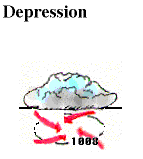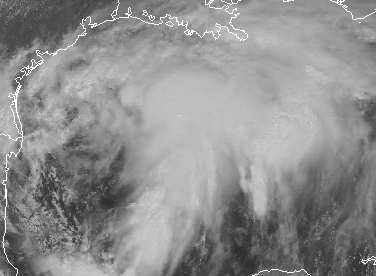
Hi! I'm Hyvi Valerie Padilla. Feel free to visit my blog.




After reading the poem, many words stroke me. I realized many facts and lessons about life. For me, Desiderata is a poem worth reading. It gives inspiration to everyone especially to the people who are lost and feel that they're hopeless. And as I am reading the poem, every word comes into my heart.
"Live. Laugh. Love." As the poem says, be yourself. Do whatever you want to do. Don't mind other's opinion. It's your own life. Cherish every moment. Every success, every failure, every memory. 'Cause it only comes once. Don't try to impress others. You are put in this world to express not to impress. And even though you fall, stand up! Nobody will help you but yourself. Don't depend to others. You have your own mind. And love everything. Love your family. Love your friends. Love your haters. Love all the people around you. And be thankful to all of them because with them, you are yourself now. Don't judge the people and things around you. You don't know them. Look at them at their good side and not at their negative side for someday, you will be thankful to them for coming into your life. Learn also to accept failure. Because once you're in the top, means you're always there. You should learn in your mistakes. For they will serve as a lesson for you someday. Smile and be happy. Everyone deserves to be happy! Everyone deserves to be inspired. Being happy doesn't need any reasons. You woke up this morning, it's a reason for you to be happy. God had given you another day to live.
Go. Go explore the world. Live your life to the fullest. All of us have given time for us to live. All we can do is to use that 'time' wisely. Don't lose any chances. 'Cause maybe that chance happens just once. We are all put here to be happy. To learn. And to be a part of this peaceful world. We have our own roles. We have our own stories. And I believe in happy endings. When you're not happy, well it's not yet the end. Strive harder! To make your life meaningful!Leave all the fears behind. Do what makes you happy. Forget all the worries. We're not getting any younger. The opportunities today might not be there forever.
Do your best always. That's all you can do to prevent regretting. And I believed that, 'everything happens for a reason'. God must put you there for a reason. And you know why are you here? For you to find out what's that reason is.
"We abuse land because we regard it as a commodity belonging to us. When we see land as a commodity to which we belong, we may begin to use it with love and respect."
Insights and Reflection about Storm Signals
|
"What we are doing to the forests of the world is but a mirror reflection of what we are doing to ourselves and to one another."
We cannot command Nature except by obeying her. ~Francis Bacon
Another week has passed! This weekend, we went to Tagaytay to have a family bonding. But I did not forgot to help in protecting the environment. These are the things I've done this week to help protect Mother Nature:
Look deep into nature,
and then you will understand everything better.
~ Albert Einstein ~
For me, it's my relax week! :) I can recover to my restless days last week. This week, since we have no classes, I decided to help my mother in household chores. Sweeping the floor, wiping the furnitures, washing the dishes, making the bed, and watering the plants. And to save electricity, I often use the computer. And when watching TV, we watch together at night and not use the other television. This week, my hobby is to walk in our barrio. It's refreshing and also good to my health.
If one way be better than another,
that you may be sure is Nature's way.
~ Aristotle - Nichomachean Ethics ~
Yipee! \(^o^)/ Busy days and restless nights are gone. *Sigh* But did I help Mother Nature this week? Of course yes! I'll not let a day end without helping protecting our Mother Nature. I'm loving it. :D These are the things I've done this week:
Every creature is better alive than dead,
men and moose and pine trees,
and he who understands it aright
will rather preserve its life than destroy it.
~ Henry David Thoreau,
from 'Chesuncook' The Maine Woods, 1848 ~
It's already our exam week this following week. All of us were all busy doing their projects, outputs and reviewing. Me, even though I'm busy, I always remind myself to save energy. Keeping the door of the refrigerator always close is a big help to save electricity. Because I know that the refrigerator consumes too much electricity. I also said to my mother to not use chemical pesticides because it can destroy our environment. I also lessen watching TV, using my cellular phone, and using the computer to save energy and to finish my school works easier. I also help my mother plant trees in our garden.
There are many little ways to help protecting the environment. But with these little ways, we can make our planet a safe place to live.
Insights and Reflections
 | Once a group of thunderstorms has come together under the right atmospheric conditions for a long enough time, they may organize into a tropical depression. Winds near the center are constantly between 20 and 34 knots (23 - 39 mph). |


"There is hope
if people will begin to awaken that spiritual part of themselves,
that heartfelt knowledge
that we are caretakers of this planet. "
~ Brooke Medicine Eagle ~
A very tiring week. Last week, we undergone many quizzes. All of us were busy. But it won't mean that we already forgot to help Mother Nature. Me, I used my papers wisely. If I'm going to write not so important things, I prefer to write in use papers.
While ago, me, my daddy and my Ate Wheina watched the movie "2012". It tells us about the 'end of the world'. And from that movie, I realized that our planet is changing. We need to help it change for the better. There are a lot of things that affect our planet in a bad way but the good news is that everyone can help to reduce them and do their bit for the environment.
These are the things I've done this week:
